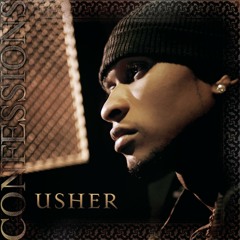
The beats were shiny and sample free, the budget low and the profits immense: Country Grammar sold 2 million units in a month and would go on to be certified Diamond, as Universal rapidly pivoted towards supporting the record and marketing Nelly as a family friendly alternative to Cash Money. The cavernous empty space in the mid range was all Nelly needed to deliver call and response hooks that were the envy of every other rapper come Summer 2K, and that’s not even accounting for “Ride With Me,” a grand slam swing for the pop fences so successful that kids and soccer moms alike sang along. Crucially, the beats hint at melodies without actually providing them, and listening to the instrumentals is revelatory – the tracks land somewhere between Japanese ambient and Mannie Fresh. ‘Country Grammar (Hot Shit)’ and “E.I” bump and tick like platinum Rolex watches, with even the synthesized guitar lines and marimba doubling as rhythmic elements. Mostly produced by Jason “Jay E” Epperson, a local friend and in house beatmaker who knew the Korg Triton’s sequencer inside out, Country Grammar, and its singles in particular, are wonders of syncopated futurism.

Instead, he zeroed in on underserved market segments: kids, women, and pop listeners, all potential clientele listening to radio and MTV that were excited by rap’s shiny new sound, but scared off by the street tales and hardcore image of a BG or Juvenile. To this day Nelly is the opposite of a rapper’s rapper: the more invested you are in Hip Hop as a ‘serious’ culture and art form, the less likely you are to claim him as a favorite or even find anything to admire in his crossover-minded output. Too country for coastal purists, but also removed from booming scenes in Louisiana, Tennessee, Georgia, Texas and Florida, Nelly was a proverbial runt in Universal’s litter, with his own A&R describing the internal reaction to his music as “extraordinarily negative”.

The idea was to collect a stream of steady, if modest profits while helping regional success stories expand, but Country Grammar changed the game, becoming an absolute smash hit while somehow completely ignoring the era’s prevailing logic.įirst, Nelly was from St Louis, a complete non-factor on rap’s regional chessboard. Following their groundbreaking distribution deal with Cash Money Records, Universal went on a regional rap signing spree, gobbling up every other emcee in every other regional hub. In Nelly’s case however, it was less of an attempt than a fluke. If Cash Money and No Limit served the hardcore, Nelly and Luda were the majors’ attempt to spin their rising sound into the mainstream. Making their major label debuts for Universal and Def Jam respectively, Nelly and Luda were marketed as baby faced solo stars with crossover hits at a time when Hip Hop beyond NY and LA was best known for molasses thick drawls, unpolished gangster rap, and local labels pushing out high volume product at a rapid clip. sexy, good times, for-the-ladies pop hits – Nelly and Luda at least operated in the same space, both expanding the parameters of mainstream rap beyond the established east and west coasts.

Nelly was intriguing because they represented opposite side of the commercial rap spectrum – angry, hardcore macho seriousness vs. On paper it makes for an easier comparison. Ludacris however, it seemed preferable to switch my plans up for a pre-fight breakdown, putting Nelly’s Country Grammar up against Luda’s Back For the First Time. Given that the quarantine battle of the week features Nelly vs. I halfway through comparing Eminem to Nelly this month in a double header 20/20, highlighting how 2000’s top 2 Hip Hop artists in sales both came from the geographic Midwest and stood out from the rest of the rap competition, but otherwise had practically nothing in common apart from perhaps a low simmering beef. Son Raw is nothing if not an opportunist. Please support Passion of the Weiss by subscribing to our Patreon.

We’re not industry, we’re in the streets.


 0 kommentar(er)
0 kommentar(er)
